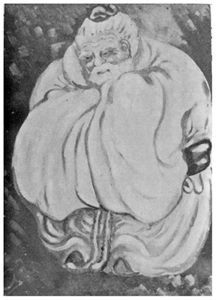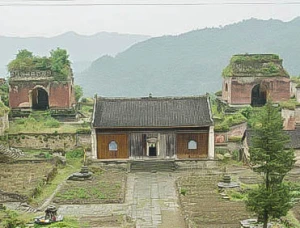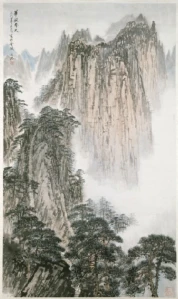Chen Tuan – Patriarch of Qigong
People whose spirit and energy is profound and pure are at peace in their bodies and tranquil within themselves. . . Most people these days are very fond of wealth and high position, but they are never content at heart. There are so many who are not happy at all. Yet those whose spirit and energy are at peace and tranquil are usually unconcerned and relaxed in their minds. That is what we call “ freedom at heart.” – Chen Tuan



Chen Tuan was born in Henan province, China, toward the end of the ninth century. From an early age, after the death of his parents, he turned to studying Taoism and devoted his life to mastering the arts of longevity. He went on retreat and lead a hermit life in the Nine Room Cave and later in the Five Dragon Temple, both on Mount Wudang in Hunan. Chen Tuan was summoned to the imperial palace in 956 during the Tang Dynasty. However, court life did not appeal to him and he later settled on Mount Hua in Sichuan.
Chen Tuan was again summoned to the court during the Song Dynasty in 976, by emperor Zhao Kuangyin. The emperor knew of Chen Tuan’s abilities in divination and understanding of the Tao and asked him to become his adviser. Again this time, Chen Tuan informed the emperor that he preferred the company of the clouds around Mount Hua to that of people. The emperor respected Chen Tuan’s wishes but wished to remain friends so that he could learn more of the Tao, in the future, after he had returned the country to a state of peace.
During his reign, emperor Zhao Kuangyin reunified most of China proper, effectively ending the tumultuous Five Dynasties and Ten Kingdoms period. At one point, the emperor wished to establish a garrison on Mount Hua due to its strategic location. The emperor decided to pay Chen Tuan a visit.
Chen Tuan was waiting for the emperor and even before the emperor could bring up the subject of establishing a garrison, Chen Tuan suggested that the two play a game of chess. If the emperor won, he could do as he wished with the mountain. But, if the sage won the emperor would have to promise that troops never be stationed on the sacred mountain.
Given his skills in divination, the sage easily foresaw the emperor’s moves and afterwards told Zhao Kuangyin how he had beaten him. The emperor laughed and honored Chen Tuan with the name Xiyi, in regards to the sage’s wisdom being rare (xi) and mysterious (yi). From that time on, Chen Tuan was know as Chen Xiyi.
Many of the Qigong and Martial arts exercises from Mount Hua are attributed to Chen Xiyi. These methods have been passed down through the ages but still remain extremely rare.
It is these same techniques that Shang Rinpoche now shares with his students currently, in Taiwan and around the world. It is Shang Rinpoche’s wish that his students be able to nurture robust and healthy bodies in order to support the further study of the mind through meditative practices. It is in this way that ancient Taoist exercises can support ancient Buddhist practices for the benefit of modern people.